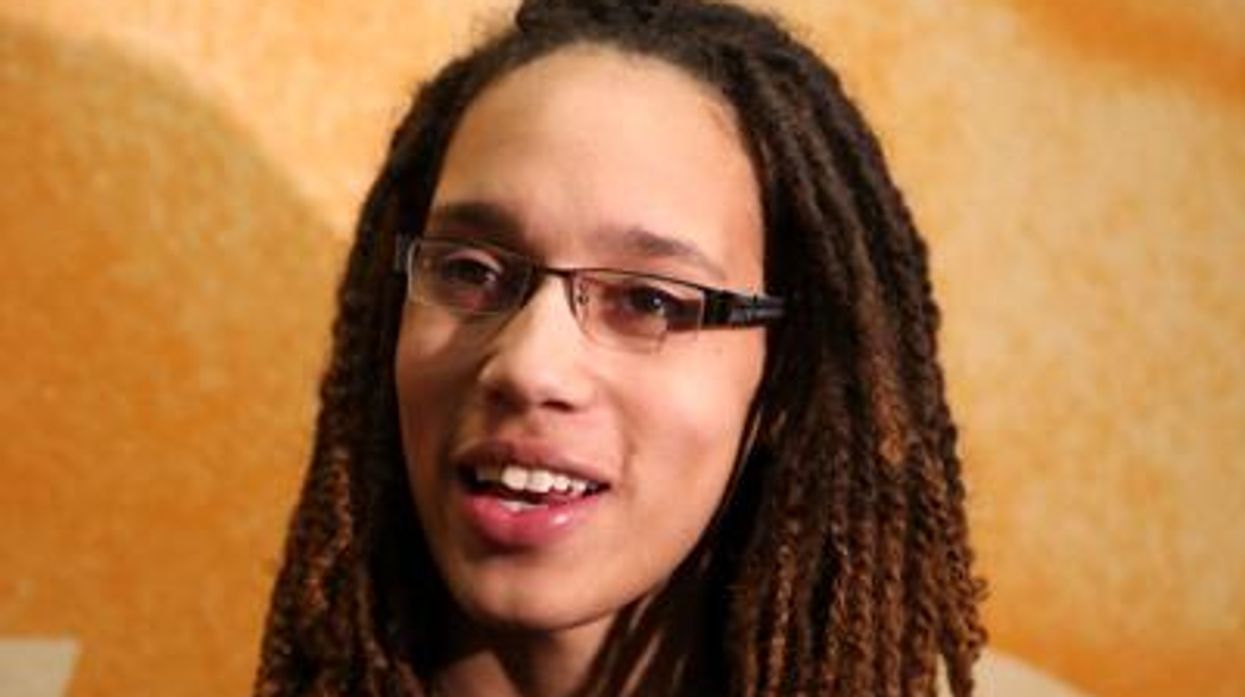Basketball star Brittney Griner is one to watch for many reasons. She came out as gay before she had her first professional game for the WNBA's Phoenix Mercury. She is one of the rare athletes to come out as an active player. It was a moment that showed how far America has progressed, but also how far it still has to go. Google her and "Brittney Griner man" shows up as often as her dunks when she played for Baylor University. More disturbing than the comments about her being a man are the attempts to make Griner feel ashamed for preferring pants over dresses. However, with Griner set to debut on the national stage this summer, can butch female athletes be free to express themselves?
Women's sports, especially Griner's future employers at the WNBA, often offer a "feminine" image of women's basketball. Lisa Leslie, one of the biggest stars ever to play in the league, plays into the stereotypes and looks down on butch female athletes with her comments. She told Essence magazine a few years ago, "My motto is: You don't have to look like the boys to play with the boys or play a 'boy sport.' I really embrace the fact that I'm feminine, that I am a woman, and I love that." In addition to those homophobic comments, sports publicists and executives often make over female athletes to make them non-threatening to the mainstream.
Ever since the 1970s and the second wave of feminism, female athletes have been derided, especially lesbian tennis stars Martina Navratilova and Billie Jean King, for being too masculine. Since then, women's sports have been running from the very aspects that built women's sports -- speed, muscular strength, and self-confidence. Even the rivalry between Navratilova and Chris Evert in the '70s and '80s was less about sports and more about traditional gender roles. As an article in the U.K. paper The Guardian said of Evert: "She showed that a traditionally feminine woman could be a sports champion. She made people comfortable."
To continue to make sports fans comfortable, female sports stars have to downplay the strengths that made them successful. Venus and Serena Williams are encouraged to talk more about their fashion than their powerful backhands. WNBA stars like Leslie and Maya Moore are given more attention than Teresa Weatherspoon and other players who appear more masculine. Though Sheryl Swoopes came out a few years ago, because she has a femme appearance, it wasn't massively controversial.
The WNBA itself ignores its loyal fan base of lesbians and tends to spotlight the male and youth attendance at games to appear more "family-friendly." The WNBA, and women's sports in general, would serve fans better by catering to all of them, including the butch and androgynous female fans, and supporting butch female athletes to show how truly progressive and open the league is to its fans and athletes.
Over the last 40 years, LGBT people have challenged traditional gender expressions. Hopefully, Griner can open the door and be a trailblazer for other lesbian and female athletes in general who are androgynous or butch so they don't have to hide who they are. Griner challenges the gender roles that are imposed on women and breaks out of that box. Her gender expression creates a safe space for other female athletes to be themselves. Many people may not take gender studies classes, so Griner may be the only way to show that gender is a construct and conveyed in many ways. Simply put, there are many ways to be a woman, and that can expressed in different ways.
As Griner said in an interview with Sports Illustrated, "If I can show that I'm out and I'm fine and everything's OK, then hopefully the younger generation will definitely feel the same way." With the tragic statistics from a National Strategy for Black Gay Youth in America survey stating that 43% of black LGBT youth contemplate suicide, Griner can be a role model to girls who are struggling with their identity. If she can wear a suit on draft day and be herself, other girls can be queer and wear ties with pride.
More important than dressing however she wants, Griner can show off her strength and be as powerful as any male athlete. Butch athletes can look like the boys while beating them at their own game. "Masculine'' and "feminine'' can become antiquated terms. Female athletes can show what they can do on the court without caring what they look like off the court.
Chicago-based ELLA VINCENT writes about culture for Ask Miss A.com and Blackworthy.com. She's also written for the Windy City Times
and ClutchMag.com. Follow her on Twitter.




































































Charlie Kirk DID say stoning gay people was the 'perfect law' — and these other heinous quotes